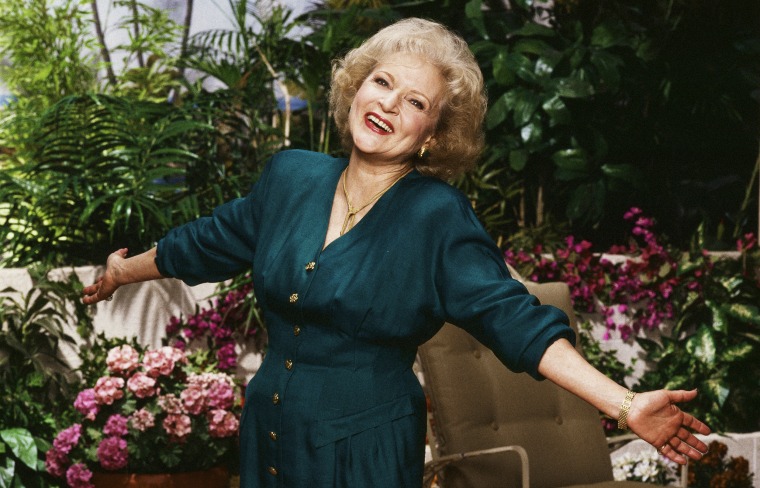Celebrating Betty White’s Legacy Beyond the Screen
Betty White posing for a photo at a “Golden Girls” photoshoot.
January 13, 2022
The world lost its most beloved actress on December 31, 2021. Betty White died at her home in Los Angeles, California, just three weeks shy of her 100th birthday.
Earning the Guinness World Record for the longest television career by a female entertainer, White was a fan favorite for nearly a century. She was most notably known for her characters in popular shows and movies, including “The Golden Girls,” “Boston Legal,” and “Hot in Cleveland.” Her iconic and award-winning performances set the stage for so many actors to thrive. Along with her pure acting talent, White’s spunky, sassy personality and optimistic outlook on life made her one of a kind.
The actress’s legacy extends far beyond the television screen. White’s feminist beliefs and groundbreaking achievements during her career influenced much of American culture. In 1952, she became the first woman to produce a national show and co-founded her own production company. Her very own “The Betty White Show” was an instant success with viewers but was later canceled after she refused to fire a Black cast member. She first invited Black tap dancer Arthur Duncan to perform on her show, which wasn’t exactly well-received by TV stations in the racially segregated South. White’s response was “Live with it,” and she did her best to provide Duncan with as much airtime as she could.
In the 1940s and 1950s, it wasn’t common for women to choose their careers over marriage, but that didn’t stop Betty White. She was divorced twice by 1950 and often had to defend her choice to prioritize work over starting a family. The actress famously told a reporter in 1954, “Men concentrate a lot on their work, so why should they expect a woman to be any less conscientious?”
She later married Allen Ludden in 1963 and stood by her decision to not have biological children. In an interview with Katie Couric in 2012, White said, “I didn’t choose to have children because I’m focused on my career.” The actress normalized the idea that a woman didn’t have to get married and raise a family in order to be successful and happy. White didn’t shy away from the topic in interviews and explicitly discussed it as a deliberate choice. She defied the gender expectations of her time to become a trailblazing feminist. The actress was a prime example of a woman who lived a successful and fulfilling life without starting a family.
White additionally used her platform to advocate for issues she was most passionate about. She was a strong supporter of animal welfare, LGBTQ+ rights, and HIV/AIDS awareness and research. One of the most notable examples of her allyship to the LGBTQ+ community was at the 2013 GLAAD Media Awards, two years before same-sex marriage became legal in the United States. She took the stage, saying, “I just want to say to all the judgmental people out there: If two people in love want to get married, let them get married. Just mind your own business and don’t worry about it.”
White was also a supporter of The Trevor Project, the Human Rights Campaign, and the Elton John AIDS Foundation. Over the years, she portrayed characters who weren’t afraid to speak their minds and often addressed controversial topics with humor and humility.
Betty White was more than just an actress. She was an ally, a fierce advocate, a trailblazing feminist, and the greatest friend. Her monumental impact on television and the lives of people across the globe will never be forgotten.


